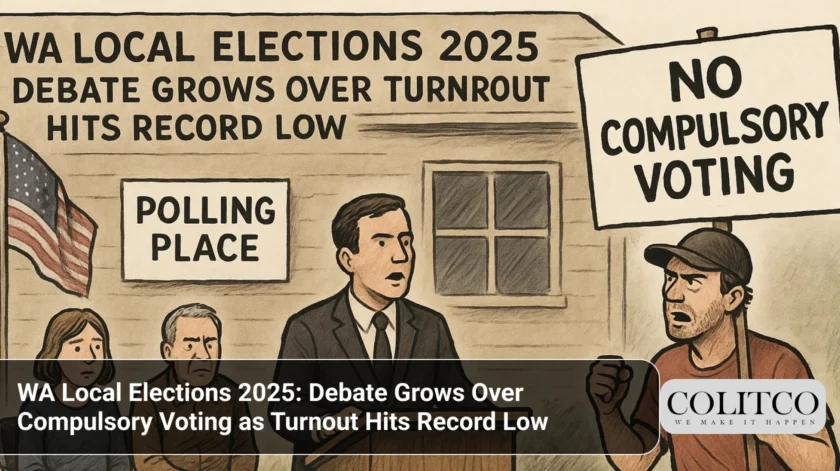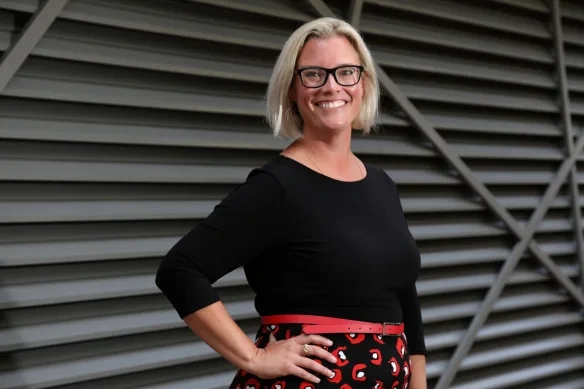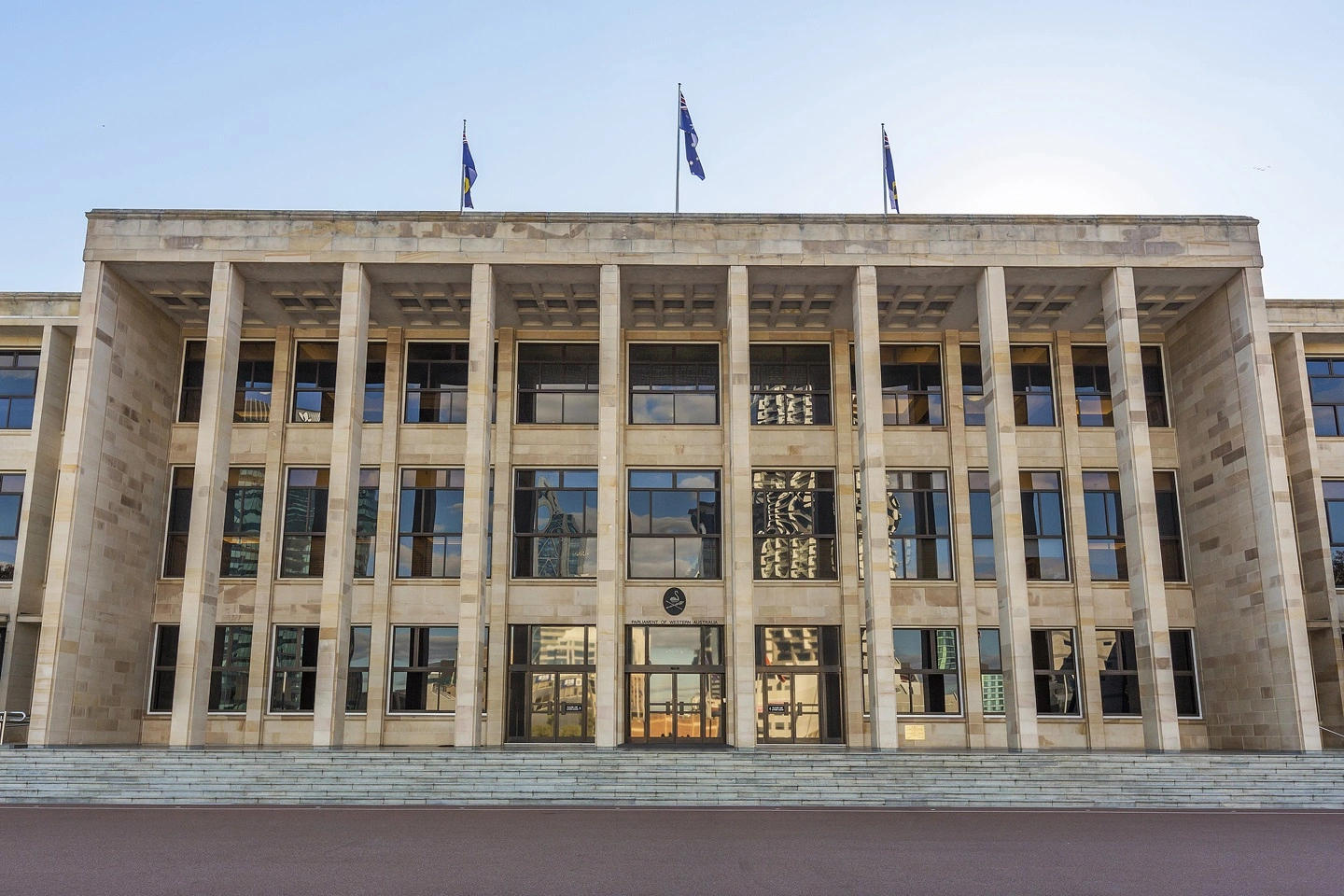West Australians are casting votes in the 2025 Local Government Election amid record-low participation across several regional councils. Less than one-quarter of eligible voters in some areas have returned ballots, prompting renewed discussions around compulsory voting at the council level.
Election data from the WA Electoral Commission on Tuesday, 14 October, reported just 25.81 per cent turnout in the Shire of Narrogin. Residents have until Saturday, 18 October, to lodge their votes as participation continues to fall.
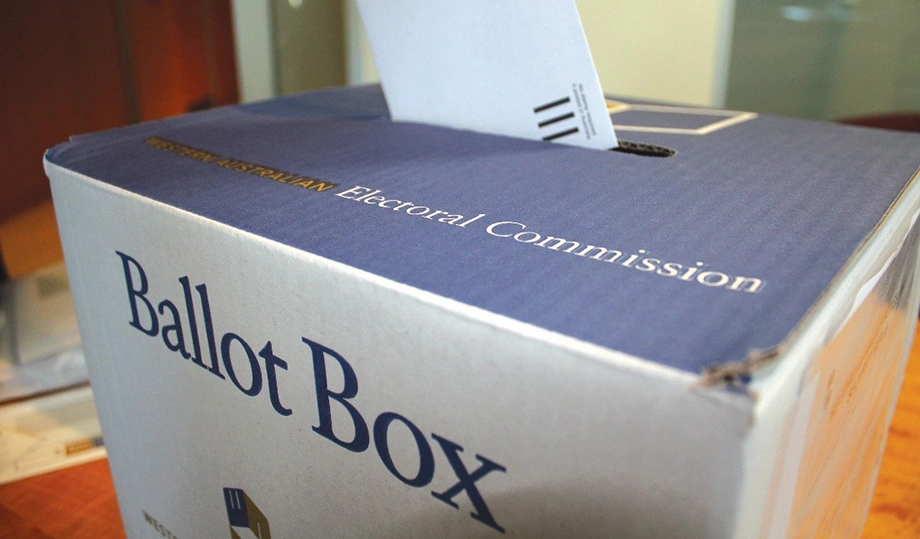 Ballot for WA Local Elections 2025
Ballot for WA Local Elections 2025
Shires Record Weak Engagement
Across multiple shires, fewer than half of registered voters have engaged. In Pingelly, only 254 out of 906 eligible voters have lodged ballots, representing 28.04 per cent turnout. The Shire of Kondinin recorded 44.05 per cent, Wickepin at 44.64 per cent, and Dumbleyung at 38.4 per cent.
In Woodanilling, a community divided over the fate of its local tavern, voter participation reached 47.48 per cent, one of the region’s highest figures. The WA Electoral Commission has reported similar trends across small towns, revealing consistent disengagement from local decision-making.
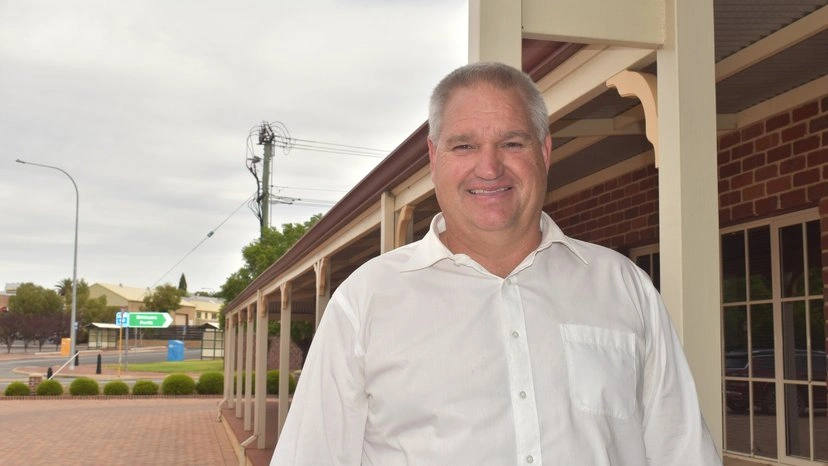 Shire of Narrogin president Leigh Ballard has been re-elected unopposed
Shire of Narrogin president Leigh Ballard has been re-elected unopposed
Incumbents Return Unopposed
The low engagement has also led to an unusual number of unopposed positions. In the Shire of Narrogin, incumbent president Leigh Ballard retained his seat without contest. Similar outcomes occurred in Corrigin, Williams, Kulin, Cuballing, Wagin, and West Arthur.
The Shire of Lake Grace also recorded unopposed elections, confirming Anton Kuchling and Benjamin Hyde as returning councillors, joined by new members Stephen Hunt and Jennifer Roche.
Minister Flags Compulsory Voting
Local Government Minister Hannah Beazley said she would consider making voting mandatory if voter turnout continues to decline. “Low participation undermines the strength of local democracy,” she said. Beazley noted that the state government would assess data after the elections conclude and may introduce reforms to align council elections with state and federal voting systems.
She said, “When people do not take part, communities lose important representation at the table.”
Compulsory voting already applies to federal and state elections in Australia. However, council elections remain optional in Western Australia, making it the only state not enforcing mandatory participation at the local level.
Growing Concerns Among Officials
Electoral officials have indicated that poor turnout is not confined to metropolitan areas. Early data shows that even larger councils report inconsistent engagement. The WA Electoral Commission noted that only 894 of 3,464 mailed ballots in Narrogin were returned by midweek.
Experts have suggested that postal voting issues may have affected participation this year. Several councils experienced delays and report errors with mailed ballots ahead of the election.
Postal Voting Complications
The WA Electoral Commission faced scrutiny after reports of incorrect postal ballot packages surfaced last month. Some electors claimed they received materials for different districts, while others reported missing return envelopes.
The commission confirmed isolated errors but stated that additional checks were underway. It emphasised that voters who received incorrect materials could request replacements to ensure validity before polls close.
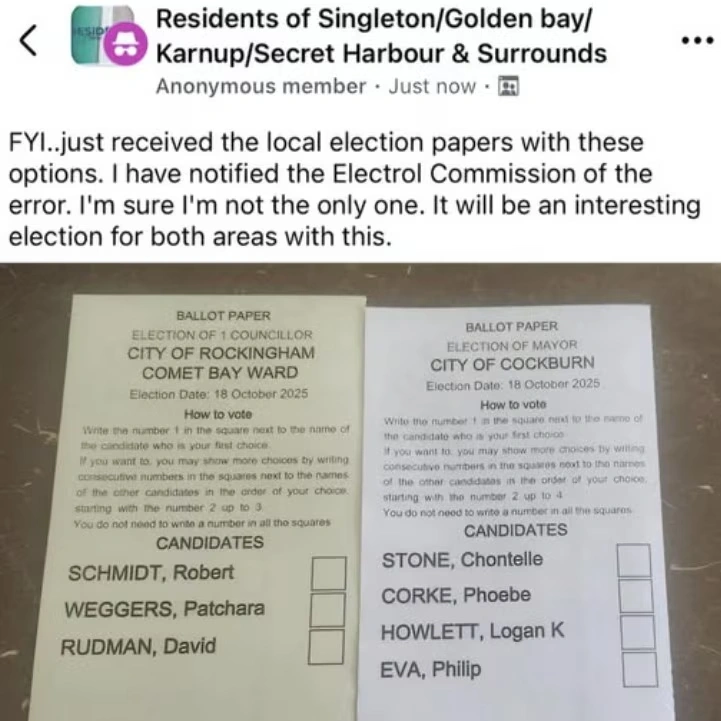
Shift Towards Compulsory Participation
Compulsory voting has become a major conversation in Western Australian politics. The Australian Electoral Commission’s history shows federal participation rates consistently above 90 per cent due to mandatory voting laws. By contrast, many local government areas in WA registered turnouts below 35 per cent in previous elections.
Analysts said this disparity indicates structural disengagement at council level, often linked to voter perception of limited influence.
Political researcher Antony Green noted that “non-compulsory turnout rates rarely exceed 40 per cent without reform.” He argued that legislative changes might be the only way to sustain local governance legitimacy.
Reforms Under Review
The state government is reviewing several recommendations to overhaul council election administration. One proposal suggests aligning local elections with state polls to reduce voter fatigue and confusion. Another recommends an online voting option to modernise access and attract younger voters.
The WAEC’s 2025 interim data indicates that only 21 per cent of 18–34-year-olds voted in the last election cycle. Minister Beazley acknowledged youth participation remains one of the “critical challenges” moving forward.
She reaffirmed that the government will consult stakeholders after the election period before introducing any legislative amendments.
Regional Context and Comparisons
Turnout differences remain stark across regional and metropolitan WA. Many rural shires record below 30 per cent participation, while urban areas like Perth City occasionally reach up to 45 per cent when major local issues arise.
Western Australia’s local polls traditionally rely on postal delivery systems rather than full voting days, unlike South Australia and Victoria where in-person voting is more common.
Weighing Future Legislation
Compulsory voting discussion continues as state leaders debate democratic accountability at the grassroots level. Proponents argue it ensures balanced representation, while critics claim mandatory laws could penalise disengaged or transient residents.
The Western Australian Local Government Association (WALGA) supports a review into participation but warns new rules must consider accessibility barriers in remote regions.
Broader Electoral Implications
The 2025 WA local election highlights a long-term trend of reduced engagement in civic governance. Frequent unopposed nominations may reduce diversity in community leadership. Analysts predict reform momentum will grow if turnout remains below 30 per cent statewide.
Minister Beazley said, “Local government plays a vital role in everyday services. It is essential that citizens take part.”
Continuing Challenge for Democracy
The upcoming results will determine whether the state proceeds with compulsory measures in subsequent cycles. As local councils finalise votes, community leaders call for renewed awareness campaigns on the importance of civic participation.
Officials expect final turnout figures after Saturday to confirm whether WA sets a new record low in council voting participation.
Analysts agree that whatever the result, the 2025 local government election marks a defining moment in Western Australia’s debate on electoral reform and democratic participation.

